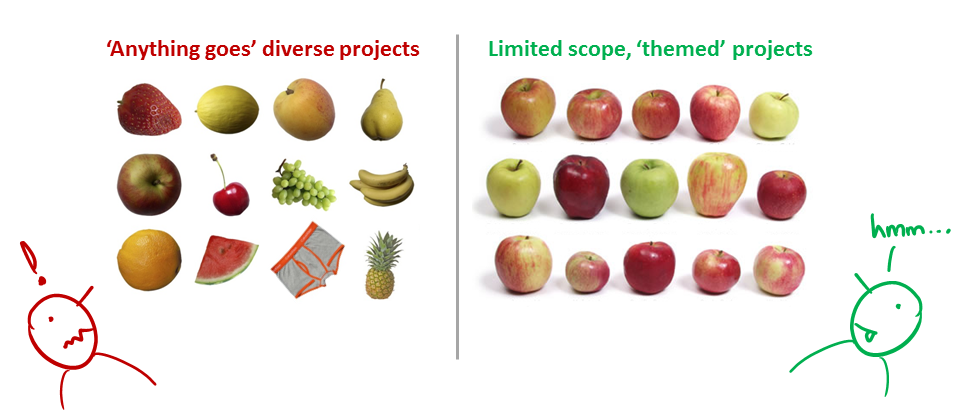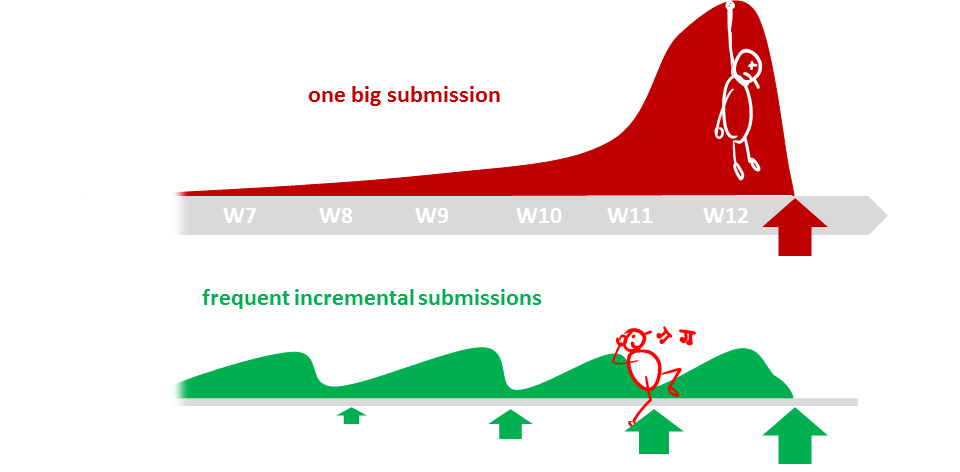-
Why so much self-study? : OPTIONAL
-
Why very narrow project scope? : OPTIONAL
-
Why so many submissions? : OPTIONAL
Where is everything?
The Schedule page presents all you need to know in chronological order while the other pages have some of the same content organized by topic.
The Schedule page is the one page you need to refer weekly. Although there is a lot of content in the Admin Info page and the Textbook page -- which you are welcome to read in those respective pages -- the same content is also embedded in the relevant weeks of the Schedule page. Embedded extracts usually appear in expandable panels and can be identified by the symbol in the panel title.
Why so much self-study? : OPTIONAL

Self-study is a critical survival skill in SE industry. Lectures will show you the way, but absorbing content is to be done at your own pace, by yourself. In this module, we still tell you what content to study and also pass most of the content to you. After you graduate, you have to decide what to study and find your own content too.
Why very narrow project scope? : OPTIONAL
Defining your own unique project is more fun.
But, wider scope → more diverse projects → harder for us to go deep into your project. The collective know-how we (i.e., students and the teaching team) have built up about SE issues related to the project become shallow and stretched too thinly. It also affects fairness of grading.

That is why a strictly-defined project is more suitable for a first course in SE that focuses on nuts-and-bolts of SE. After learning those fundamentals, in higher level project modules you can focus more on the creative side of software projects without being dragged down by nuts-and-bolts SE issues (because you already know how to deal with them). However, we would like to allow some room for creativity too. That is why we let you build products that are slight variations of a given theme.
Also note: The freedom to do 'anything' is not a necessary condition for creativity. Do not mistake being different for being creative. In fact, the more constrained you are, the more you need creativity to stand out.
Why so many submissions? : OPTIONAL

The high number of submissions is not meant to increase workload but to spread it across the semester. Learning theory and applying them should be done in parallel to maximize the learning effect. That can happen only if we spread theory and 'application of theory' (i.e., project work) evenly across the semester.
In addition, spreading the work across the semester aligns with the revisiting concepts at spaced intervals'spaced repetition' technique that we apply in this module to increase your retention of concepts learned.